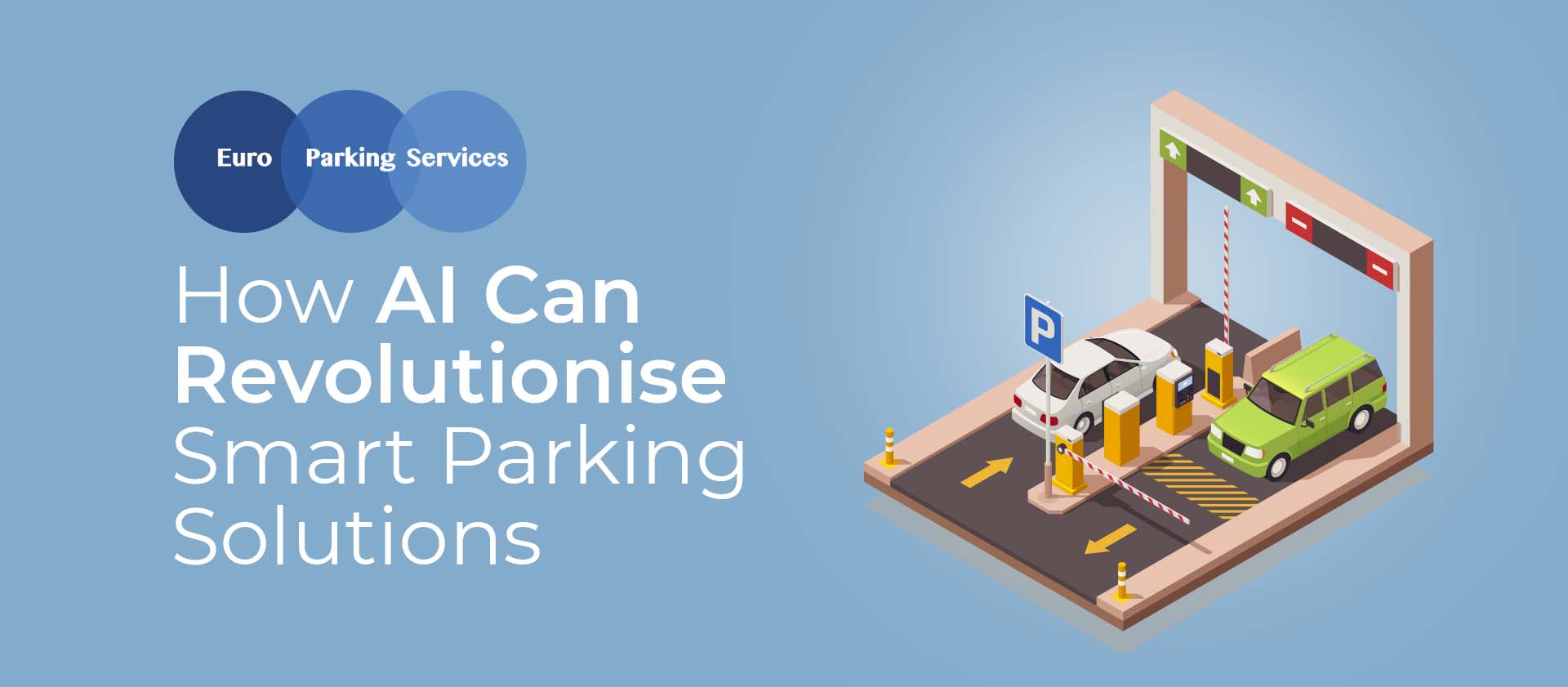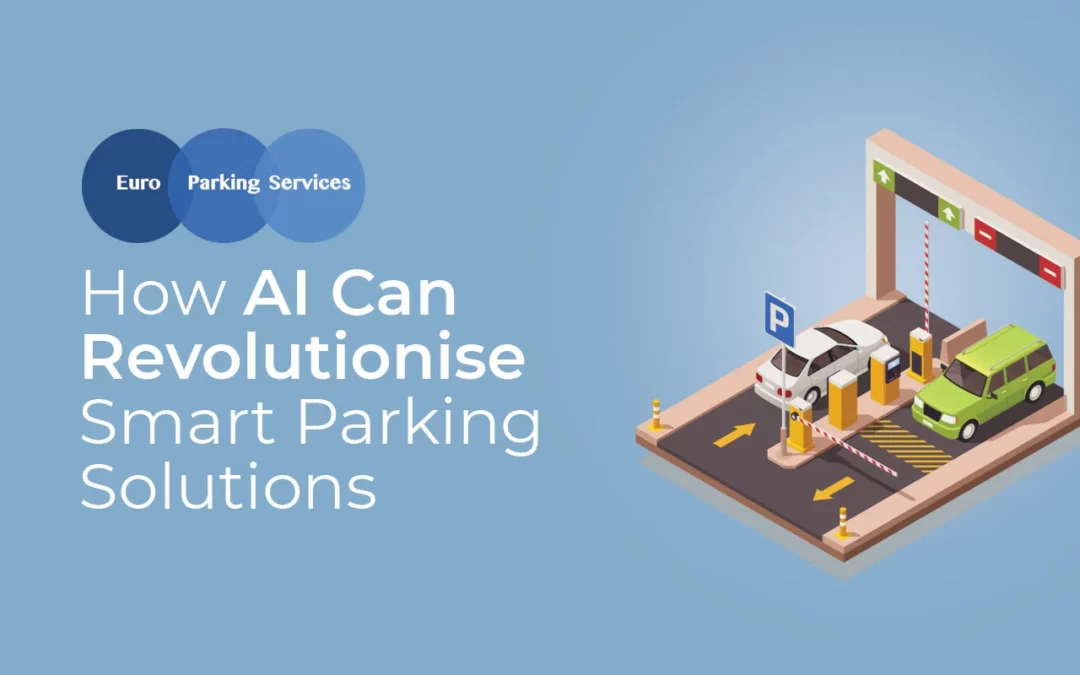
In this fast-paced world, challenges are always on our doorstep, like finding an empty parking spot, which has become an ever-increasing problem. As cities grow and the number of vehicles on the road multiplies, the need for efficient parking solutions has become essential. Fortunately, technological advancements and artificial intelligence (AI) have paved the way for innovative smart parking systems. AI algorithms and data analytics offer a range of benefits, and investing in these intelligent systems will help reduce traffic congestion and optimise parking space utilisation.
As AI evolves continually, we can expect more advanced solutions that improve resource allocation, reduce traffic congestion, and enhance the overall parking experience for drivers and citizens. AI has significantly impacted smart parking solutions by transforming traditional parking methods into efficient, data-driven systems, and it will continue to do so with future advancements.
In this blog, we will learn how AI influences smart parking solutions and examine the involved technologies, their advantages, and the potential future developments in this exciting field.
Understanding Smart Parking Solutions
To fully understand how AI influences smart parking solutions, let’s first understand what these solutions stand for. Smart parking refers to implementing advanced technologies to optimise parking management and enhance the overall parking experience for motorists.
Traditional parking methods are often time-consuming and frustrating, such as roaming around for an available spot or dealing with outdated payment systems. Smart parking systems aim to eliminate these inefficiencies by integrating AI and data analytics.
These parking systems provide solutions that help with optimum parking space usage, reduce traffic congestion, and enhance the user experience. It utilises the technologies and applications such as CCTV, ANPR, multiple-payment terminals, etc.
AI-Powered Parking Guidance Systems
One of the significant ways AI influences smart parking is by implementing parking guidance systems (PGS). These systems utilise AI algorithms to collect and analyse real-time data from various sources, such as sensors, cameras, and mobile applications, to provide drivers with accurate information about nearby vacant car parks.
AI algorithms can process a vast amount of data and make real-time predictions, allowing PGS to guide drivers to the nearest vacant spot. These systems enhance convenience for motorists and significantly reduce traffic congestion and carbon emissions by reducing the time spent searching for parking. Moreover, AI-powered PGS can provide valuable insights into parking patterns, helping city planners and parking managers make practical and reasonable decisions about infrastructure improvements and resource utilisation.
Predictive Analytics and Dynamic Pricing
AI’s predictive analytics capability is another factor that has a significant influence on smart parking solutions. AI algorithms can also predict parking demand patterns by analysing the available data and considering various factors such as time, day, weather, and events. This information allows parking operators to optimise their resources, ensure the availability of parking spaces during peak hours, and adjust prices based on demand.
Dynamic pricing is an innovative concept that uses AI algorithms to determine parking fees. By adjusting prices in real-time based on demand and availability, parking operators can encourage drivers to park during off-peak hours. This maximises parking space utilisation and benefits drivers by offering them cost-effective options. Additionally, dynamic pricing can help manage traffic flow by discouraging drivers from congested areas and reducing the time spent looking for parking.
Autonomous Vehicles and Automated Parking
The rise of autonomous vehicles presents exciting opportunities for AI-driven smart parking solutions. Self-driving cars with AI capabilities can communicate with smart parking infrastructure to identify and navigate available parking spaces. This integration eliminates human intervention in parking operations and ensures optimal space utilisation.
Automated parking systems powered by AI enable vehicles to park themselves efficiently. These systems use sensors and cameras to assess the surrounding environment and accurately navigate vehicles to parking spots. AI algorithms play a crucial role in ensuring safety during this process by analysing data from multiple sensors in real time.
Potential Future Development
The development of AI in smart parking solutions is expected to continue rapidly, and some of the potential ones are mentioned below:
- Enhanced Real-Time Data
AI algorithms will become even more progressive in collecting and analysing real-time data from various sources, including parking sensors, cameras, and mobile applications. This will enable more accurate and detailed information about parking availability, occupancy, and turnover rates.
- Integration with Navigation Systems
AI-powered smart parking solutions can seamlessly integrate with navigation systems, providing drivers with real-time parking guidance and recommendations based on destination and preferences. This integration will further streamline the parking experience and reduce traffic congestion.
- Smart Infrastructure Expansion
As AI technologies evolve, there will be an increased focus on developing smart parking infrastructure. This may include deploying advanced sensors, cameras, and communication systems to gather and transmit data effectively. Integrating AI algorithms with smart traffic management systems will also enable more efficient parking allocation and traffic flow optimisation.
- Sustainability and Electric Vehicle (EV) Integration
AI-powered smart parking solutions will play a crucial role in supporting the transition to electric vehicles. By incorporating EV charging station availability in several car parks and integrating it with the parking guidance system, drivers of electric vehicles can easily locate and access charging infrastructure, promoting the adoption of sustainable transportation.
- Seamless Payment and User Experience
AI can simplify and enhance the payment process by integrating with mobile applications and other digital options. This will enable seamless, contactless transactions and eliminate the need for physical payment methods or parking tickets. Moreover, personalised user profiles can be created, offering customised parking preferences and loyalty rewards based on individual preferences and usage patterns.
Conclusion
Artificial intelligence has revolutionised how we approach parking solutions, offering numerous benefits for drivers, parking operators, and city planners. AI-powered parking systems optimise parking space utilisation, reduce traffic congestion, and enhance the overall parking experience of the motorist.
Through AI-powered parking guidance systems, predictive analytics, dynamic pricing, and integration with autonomous vehicles, parking experiences are becoming more convenient, sustainable, and optimised. Predictive analytics and dynamic pricing enable parking operators to adapt to changing demand patterns, maximise revenue, and improve traffic management.
Integrating AI with autonomous vehicles brings us closer to a future where vehicles can navigate and park themselves seamlessly, reducing the burden on drivers and improving parking efficiency. The future of smart parking looks promising, driven by the power of artificial intelligence.
Euro Parking Services is a renowned name in the parking industry. We offer the best AI-driven parking management services across the UK to enhance car parks’ efficiency and provide motorists with an optimum parking experience. Reach out for a free site evaluation and tailored parking solution customised for your car park.


